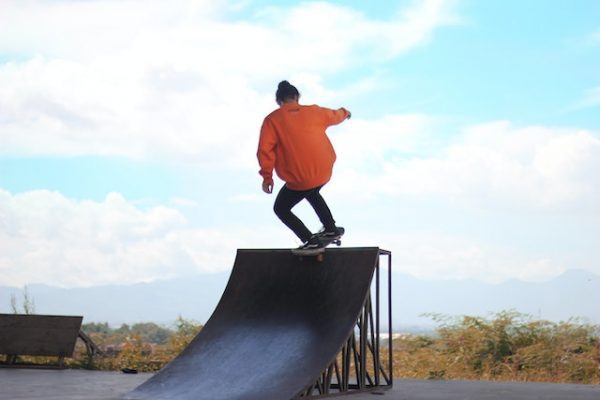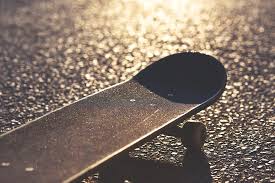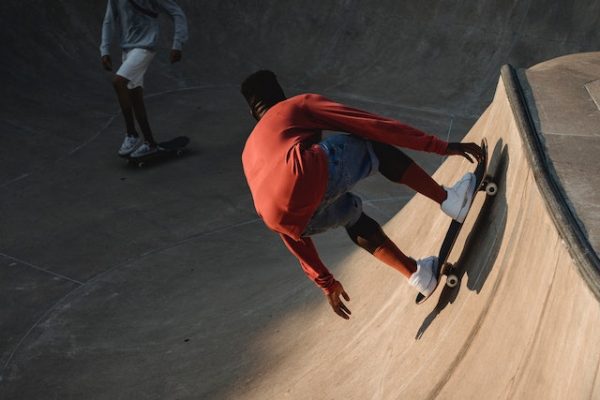Lengthy trainings are a dynamic journey that not only hones your skills on the board but also emphasizes the crucial aspects of injury prevention.
Through consistent trainings, they develop a deep connection with their board, allowing them to skate with finesse while safeguarding their legs from potential injuries. This enduring commitment to the sport fosters not only remarkable proficiency but also a profound understanding of the art of riding. Strength training is an integral part of their weekly routine, enhancing their ability to skate with stability and balance. Stay with us and learn more along the way about the many benefits of board for your body and mind. From improved balance and coordination to stress relief and social interaction, it offers a comprehensive approach to enhancing your physical fitness and mental health.

Skateboarding, once an underground subculture, has soared to become a dynamic sport and an art form embraced by millions worldwide. It is a thrilling dance of balance, courage, and creativity, where skateboarders defy gravity and embrace the freedom of the concrete canvas beneath their wheels.
From mastering the basics of pushing and turning to executing gravity-defying tricks like switch pop or kickflip that leave spectators in awe, the journey of a rider is a constant pursuit of progress and self-expression. Incorporating strength training into their weekly routine ensures they develop the necessary stability and balance to perform these impressive maneuvers with precision and confidence.
For those eager to embark on this exhilarating journey or those already cruising along the pavement, the key to unlocking one’s true potential lies in a well-crafted practice plan, making sure the objective is well addressed on the content of your plan. Beyond merely learning tricks and stunts, a comprehensive approach that encompasses skill development, physical fitness, mental fortitude, and an unwavering passion is the roadmap to lasting success.
In this article, we delve into the art of building a sustainable and progressive training plan and schedule when you skate. We’ll explore the essential components and top ways that elevate riders from novices to masters, enabling them to overcome challenges, stay inspired, and continuously evolve in this ever-evolving world of wheels and boards. Whether you dream of becoming a street-skating prodigy, a ramp-conquering expert, or a vert-racing champion, this guide is your compass to navigate the exhilarating path of greatness.
Key Takeaways
- Crafting a regular schedule for practicing skateboarding is essential for steady progress and lasting success in the sport.
- Set clear and achievable skateboarding plans to stay focused and motivated throughout your journey.
- Assess your current skateboarding skills and identify areas that need improvement to tailor your goal effectively.
- Develop a realistic timeline with smaller, achievable goals for each month or quarter to track your progress.
- Balance skateboarding training and recovery by including rest days in your schedule to prevent burnout and injuries.
- Master fundamental skateboarding skills like balance, pushing, turning, and stopping as they form the foundation for advanced skateboarding tricks like the kick flip, switch pop, and many more at the comfort of your home.
- Divide your skateboarding training sessions into warm-ups, skill-building drills, and specific trick practice to maximize efficiency.
- Gradually progress to more challenging skateboarding tricks as you gain proficiency in basic skills to avoid frustration and injuries.
- Supplement with skateboarding cross-training exercises for riders to improve overall fitness, strength, flexibility, and good form.
- Record and analyze your skateboarding sessions through video to track progress and identify areas for improvement.
- Seek coaching or mentorship from experienced skateboarding riders to receive guidance and feedback on your technique.
- Stay inspired by connecting with a supportive skateboarding community and watching professional athletes.
- Listen to your body, prioritize safety, and seek professional help if you experience pain or injuries.
- Be flexible and adapt to your practice schedule as needed based on progress, setbacks, or changes in circumstances.
How To Build A Regular Rehearsal Schedule
Building a plan requires careful consideration of various aspects to ensure steady progress and prevent injury. Incorporating strength training and exercises that enhance stability and balance into your weekly routine is crucial. Here’s a step-by-step practice to succeed:

- Set Clear Goals: Define your goals. These can be specific tricks you want to learn, competitions you want to enter, or simply improving your overall skills. It’s not easy to learn a new trick. Make sure to list down and prioritize the new trick that you want to focus on first. Having clear objectives will help you stay focused and motivated.
- Assess Your Current Skills: Evaluate your current abilities honestly. Identify your strengths and weaknesses, which will help you tailor your plan for skateboarding training to address areas that need improvement.
- Create a Realistic Timeline: Develop a timeline that spans several months or even years. Break it down into smaller, achievable goals for each month or quarter. This will allow you to track your progress and make adjustments as needed.
- Balance Training and Recovery: Plan a training schedule that includes both practice and rest days. Proper rest is crucial for muscle recovery and injury prevention. Overtraining can lead to burnout and injuries, so avoid pushing yourself too hard too quickly.
- Focus on Fundamentals: Dedicate time to mastering the fundamental skills, such as proper balance, pushing, turning, and stopping. A strong foundation will make it easier to progress to more advanced tricks later.
- Divide Your Training Sessions: During each session, divide your time between warm-up exercises, skill-building drills, and practicing specific tricks. Warm-ups are essential to prevent injuries and prepare your body for the demands of skating.
- Progressive Skill Development: As you gain proficiency in basic skills, gradually progress to more challenging tricks. Avoid attempting advanced tricks before you’re ready, as it could lead to frustration or injuries.
- Cross-Training: Supplement your training with cross-training exercises for riding to improve overall fitness, strength, and flexibility. Activities like yoga, calisthenics, or core workouts can be beneficial for performance.
- Video Analysis: Record your sessions and review the footage regularly. This will help you identify areas for improvement and track your progress over time.
- Seek Coaching and Mentorship: If possible, work with an experienced coach or find a mentor who can provide guidance and feedback on your technique.
- Stay Inspired: Surround yourself with a supportive community. Watch videos of professional riders, attend events, and stay connected with fellow skateboarders to stay motivated and inspired.
- Listen to Your Body: Pay attention to any signs of fatigue, pain, loss of energy, or discomfort. If you experience pain, take a break and consult a healthcare professional if necessary.
- Adapt and Adjust: Life is unpredictable, and your targets might need adjustments. Be flexible and willing to adapt your goal based on progress, setbacks, or changes in circumstances. Incorporating strength training and exercises that improve stability and balance can help you stay resilient and maintain your momentum, even when faced with unexpected challenges.
Conclusion
In conclusion, long-drawn practice for riding is a comprehensive journey that extends beyond the skate park bench, encompassing strength training plan exercises tailored for riders. Focusing on single leg stability, shoulder width stance, and straight-line precision, these exercises empower riders to enhance their skills and ride for longer periods with reduced risk of injury.
Incorporating sets of 10 reps in their practice regimen, skateboarders can not only refine their performance on the board but also fortify their bodies for the demands of the sport. Including strength training exercises and activities that enhance stability and balance ensures a sustainable and rewarding experience in the world of skateboarding.

Throughout this article, we have highlighted the essential elements that contribute to a successful skateboard journey for everyone. From setting clear plans and mastering fundamental skills to embracing rest and recovery, the process demands dedication, consistency, and a willingness to adapt. Remember that greatness in riding isn’t born overnight, but through countless hours of practice, perseverance, and unwavering passion.
As you lace up your skate shoes and take to the streets, parks, or ramps, let the knowledge gained here serve as your compass. Stay connected with the vibrant community, learn from experienced mentors, and remain open to refining your plan as you progress. Celebrate the small victories and embrace the challenges as opportunities for growth.
Lastly, as you advance on this thrilling journey, always prioritize safety and listen to your body. The path to success may have its share of setbacks, but these moments of adversity are what fuel determination and propel skateboarders to new heights.
In closing, we encourage you to remember that riding is not merely a sport or a hobby; it is a lifestyle that enriches your spirit and fosters a sense of camaraderie. Cherish the freedom of the ride, the exhilaration of landing a new trick, and the boundless possibilities that await you for free!
Now, with a well-crafted practice plan in hand, set forth fearlessly and embrace the artistry of riding. Unleash your potential, define your own style, and revel in the boundless joy it brings. The streets are your canvas, and your ride is your brush – paint your masterpiece, and let your passion ignite a lifelong love affair with the art of riding. It doesn’t matter how slow or fast of a learner you are, what matter’s is that as a skater, you’re determined even if you stumble for a couple of times.
We hope that this article has been useful in helping you create a plan to succeed. We encourage you to share your feedback, experiences, and opinions with us here at FamilyHype. If you want to learn more about skateboards, you can also look online, there’s lot of official apps out there, you can download the app to keep yourself updated. It is a rewarding and fulfilling activity that can bring joy to your life. So, plan ahead, stay focused, and enjoy the ride!
Happy Skating!
Frequently Ask Questions (FAQs)
Last Updated on July 2, 2024 by Harold Chan
DISCLAIMER (IMPORTANT): This information (including all text, images, audio, or other formats on FamilyHype.com) is not intended to be a substitute for informed professional advice, diagnosis, endorsement or treatment. You should not take any action or avoid taking action without consulting a qualified professional. Always seek the advice of your physician or other qualified health provider with any questions about medical conditions. Do not disregard professional medical advice or delay seeking advice or treatment because of something you have read here a FamilyHype.com.